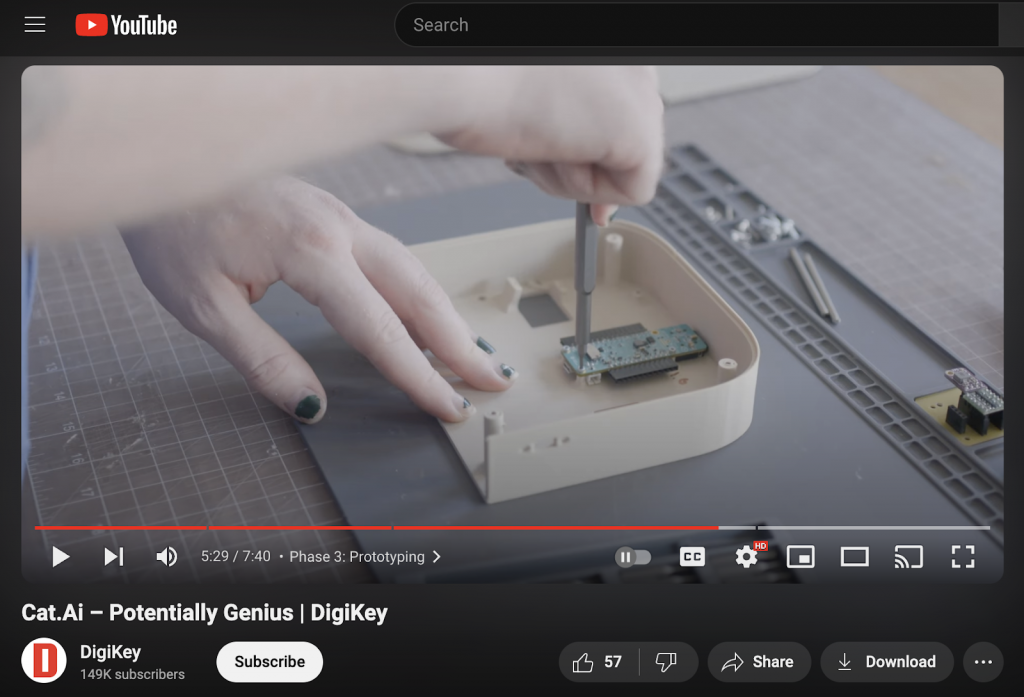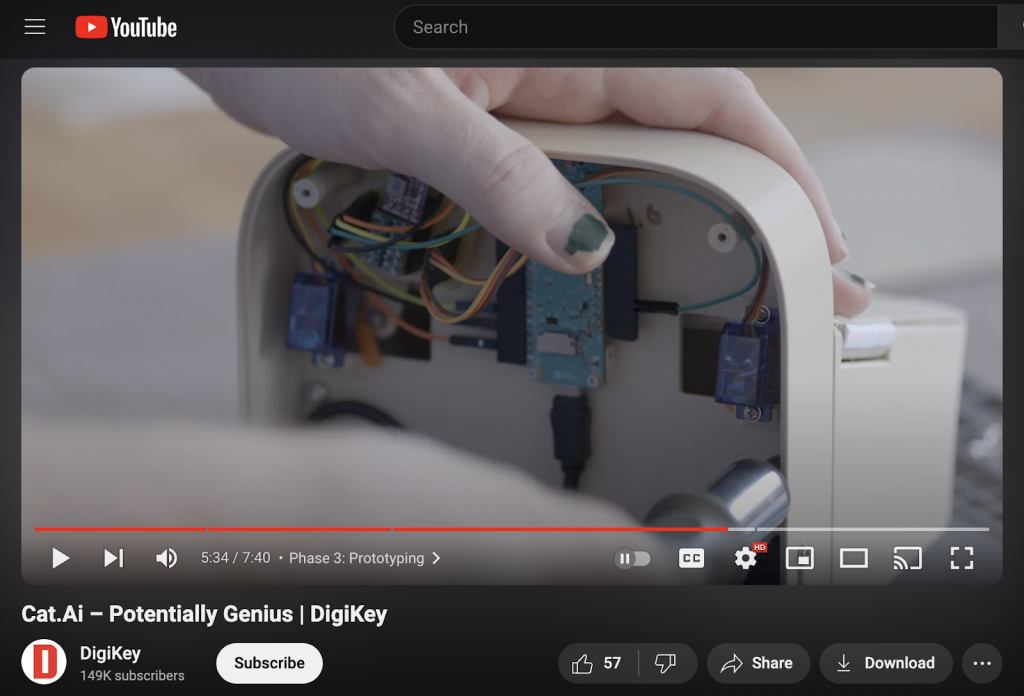Introduction
Another episode of Potentially Genius has dropped! Our guest for this episode is Corneliu Pizara from Analog Devices Inc., a global powerhouse that co-creates and offers solutions to help their customers transform data into actionable insights and connected devices in analog, digital and software. ADI provided Tomorrow Lab with their Max78000 Featherboard, a rapid development platform that allows engineers to quickly implement low power and low cost on-chip AI. Tomorrow Lab’s partner Ted Ullrich explains that it has an onboard camera and audio interface that allows for audio processing, facial recognition and object detection without needing the internet. Pizara also tells us that the platform has bluetooth connectivity, battery powered fuel gauge and an LCD touch display. Pizara challenged Tomorrow Lab to create something that leverages the AI capabilities of the platform, including using recognition of some kind. We were then off to the races to see what ideas we could come up with using this new technology!
As always, a friendly reminder that our YouTube series, sponsored by DigiKey, a top electronics components distributor, is in its third season already! We often find ourselves on DigiKey’s website daily – browsing their massive library of components in order to find just the right item for inspiration, testing and to refine our design choices. Potentially Genius allows us to showcase our creativity and provide inspiring content that empowers viewers to embark on new projects!
Cat.Ai
First, Ullrich and Tomorrow Lab’s industrial designer Henry Ripley and electrical engineer Jason Tse discuss different directions for the platforms use: counting the number of people in a space to trigger a capacity alarm, a power strip with facial recognition to turn certain devices on and off for personal use, and the winner – a feeding device for cats. The device will only allow cats – or a certain cat, to access the food bowl using AI, preventing their eager dog friends from eating their dinner.
Tse lists out which components they sourced from Digikey for the electronics:
- Two micro servo motors from Adafruit
- One mini boost 5 volt from Adafruit
- One panel mount micro-usb cable from Adafruit
Tse explains that the typical product Tomorrow Lab works on consists of hardware and firmware, but this product will require AI/machine learning as well. Tse walks us through how they achieve the machine learning requirement – taking high resolution videos of stuffed cats and dogs and slicing them into hundreds of still frames of every angle of the animal. Once the images are labeled and organized into folders, Tse runs a cat versus dog training script. Eventually Tse is provided with a checkpoint file that contains the trained AI model with all its weights and biases. Then Tse uses other scripts to quantize the model and synthesize it to generate code that the Max78000 can run. Finally the code is edited in order to control the servo motors.
Ripley walks us through the CAD design, taking note of the measurements of all the components Tse picked out. The housing comes together nicely and it is clear what the device will look like from the start – a feeding bowl with two motorized flaps that open and close like a book. Ripley walks us through some troubleshooting with the hinges, some finishing work in the shop and then we get to watch the final assembly of the prototype.


The final reveal shows off a cute and super sleek cat feeder, featuring a teeny camera that detects whether the visitor is indeed, a cat! The motorized doors are driven by the AI powered board, and will only open for feline friends – no dogs allowed! Happy to hear we have convinced Pizara to adopt a furry companion!
